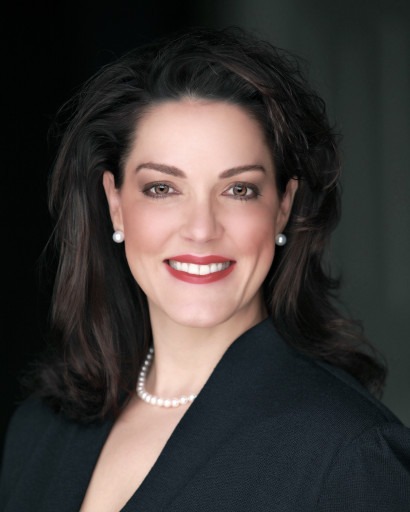If you’re an advisor with a growing practice, you’ve likely been involved in the hiring process at some point. I’ve helped many advisors like with you hiring, and interviewing is always the most dreaded aspect.
Other phases of hiring like recruiting, compensation and on-boarding each have their own challenges, but interviewing can be incredibly awkward and nerve-wracking for all involved.
“What do I ask?”
“How do I know if it’s going well?”
“When should I make up my mind about this person?”
The questions about interviewing are seemingly endless and may feel overwhelming. But interviewing is also the most critical part of the hiring process, as it gives you a detailed indication of:
- The individual’s personality, skills and abilities
- The value they bring to the team
- Their intrinsic likes
- And an indication of whether they match the actual role within the team.
While there is no guarantee for a foolproof interviewing process, once you get a handle on the basics and employ a structured approach, interviewing becomes a much more comfortable and empowering endeavor.

Based on years of experience in guiding advisors towards making the ideal hire, here are a few of the top do’s and don’ts of interviewing.
Top 5 Don’ts of Interviewing
Don’t interview until you have a job description. Without it, how will you know if you have the right fit for the role? The high level job overview and task list (daily, weekly, monthly, quarterly, yearly) set a crucial foundation for successfully interviewing to full the position.
Don’t ask illegal/inappropriate questions. Topics like these are of the “hot stove” variety. Don’t touch!
- How old are you?
- Are you married?
- Are you planning a family?
- Do you have children?
- Have you made childcare arrangements if you get this job?
- What religion do you practice?
- Do you have any medical problems, disabilities, etc.?
A good rule of thumb is to only ask job-related questions. Not hiring a candidate due to their race, color, sex, religion, national origin, birthplace, age, disability or marital/family status is illegal. Therefore, do not ask questions that could elicit such information.
Don’t decide too soon. Too often we get the call about someone being hired and hear “Now what do I do with them?” Just because the candidate seems like a winner or has seemingly positive qualities doesn’t mean they’ll be capable to fill the role you need without proper assessment.
Don’t hire them because they remind you of you. Many inexperienced advisors tend to hire those most like their own personality and “fall in love” with the similarity vs. additional vetting beyond personality.
Don’t ignore red flags. If they’re late for their interview, they’ll be late for anything. Hearing pushback on role expectations is another easy one to spot. For example, if work hours are 8-5 and the candidate says “I only work 9-4,” there’s going to be trouble in paradise. Also, philosophies or values differing from your team will likely disrupt your culture.
Top 5 Dos of Interviewing
Do explain the entire interviewing process. Too often candidates are left wondering what the next stage is in the process or a timeline of the decision. The market it too competitive today to not give clarity of the process.
Also, your process may need to be sped up or consolidated to ensure you still get the information you need to make the best decision without losing quality candidates.
Do ask better questions. By asking open-ended questions and asking for specific examples, you’ll give your candidate a chance to demonstrate their listening skills and their ability to communicate. Here is just a sampling of the questions I supply advisors:
- Describe a situation where you had to explain a technical or complex subject to others. What steps did you take to ensure you adequately explained the key points?
- Tell me about a time when you discovered there had been a miscommunication. How did you figure out there was a problem, and what did you do to resolve the issue?
- What are some practices you’ve used to develop and maintain strong workplace relationships?
- For work you’ve done in the past, when has following a very structured procedure been beneficial? When has it been better to develop your own approach?
Do role playing. A skills assessment and role playing are great ways to gauge real-world capabilities while also getting your team involved. For example, if hiring a Financial Planner, have them briefly put together a plan based upon a given client scenario with enough details for them to create their recommendations.
This will give clarity on their process, philosophy and bottom-line skill of putting a plan together. Have them present it your team members (playing the role of client) to see how well the candidate handles a meeting and their communication style.
Do professional assessments. Assessments like PXT (download PXT brochure) and Myers-Briggs allow you to dive well below the surface and truly understand a candidate’s capabilities. Plus, they’ll boost your decision-making confidence as they’re much more likely to identify strengths/weaknesses than the Q&A interview alone.
Do enjoy a meal together. By getting out of the office and into a more personal setting, your candidate may act more like themselves and either confirm the good qualities you’ve encountered in the interview or reveal other aspects of their personality that may not be a good fit.
Bonus Tip: How to Know You’ve Got a Viable Candidate
From the beginning of the interview process, ask yourself this question: “Am I curious and want to know more?”
You may instead find yourself asking, “Would I hire them or not?” But you don’t have enough information to answer the ‘hire or not’ question until the end of the interviewing process. The ‘Am I curious’ question helps you and your hiring team move candidates through the process or to disengage.
Stay tuned for upcoming installments in my series on interviews. By following these and future tips on interviewing, you’ll soon be a hiring pro for your practice.
Be sure to subscribe to our newsletter to get these and other practice management tips delivered right into your inbox.



